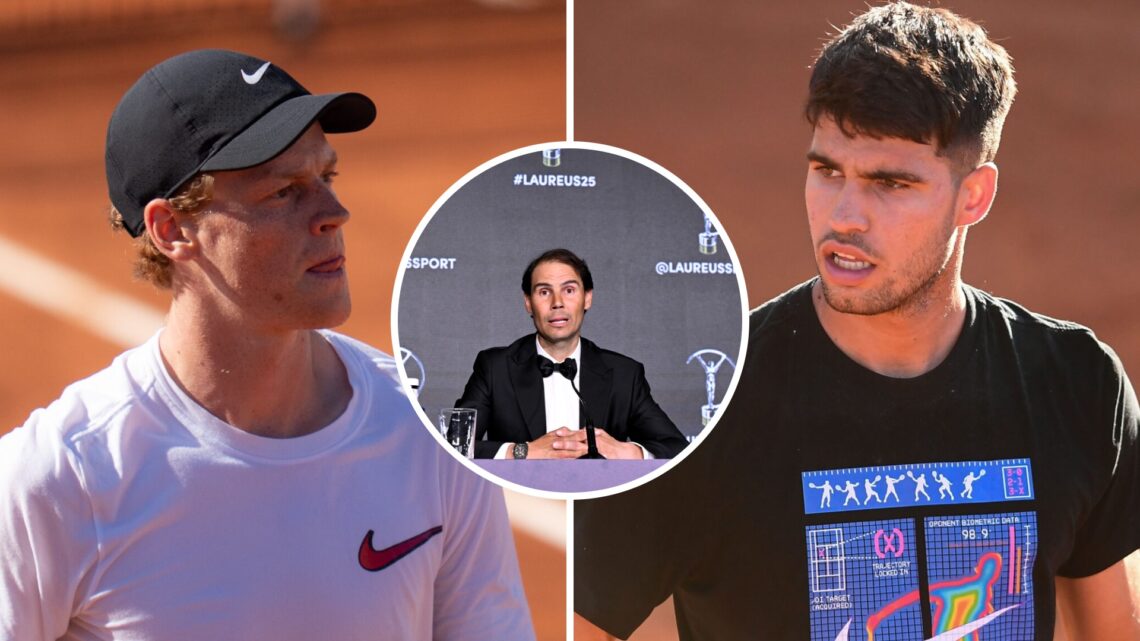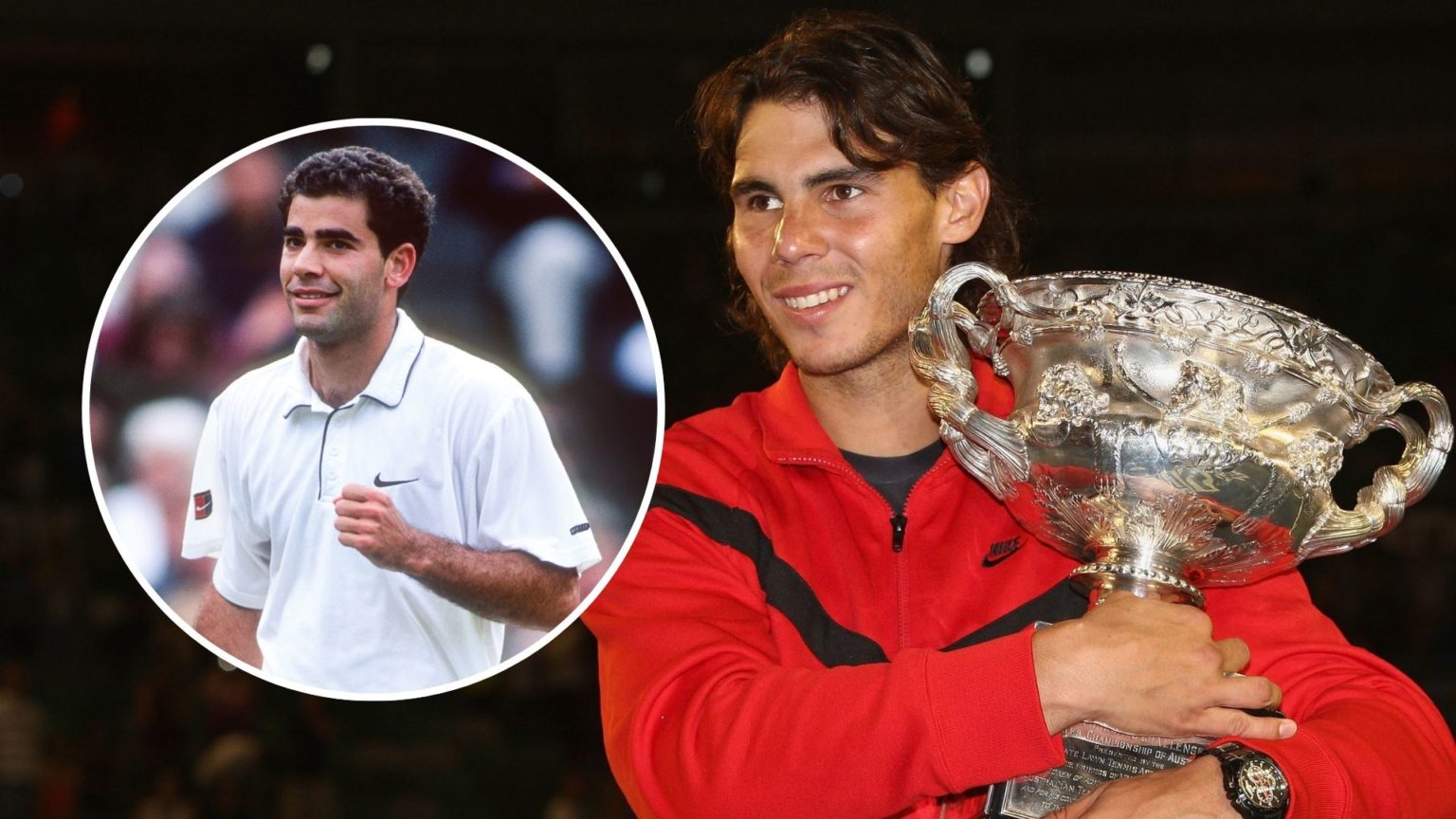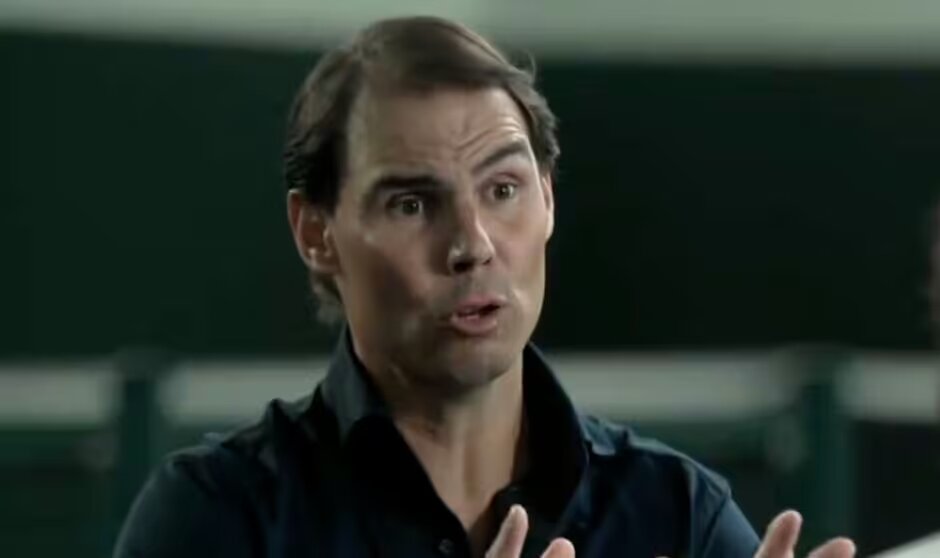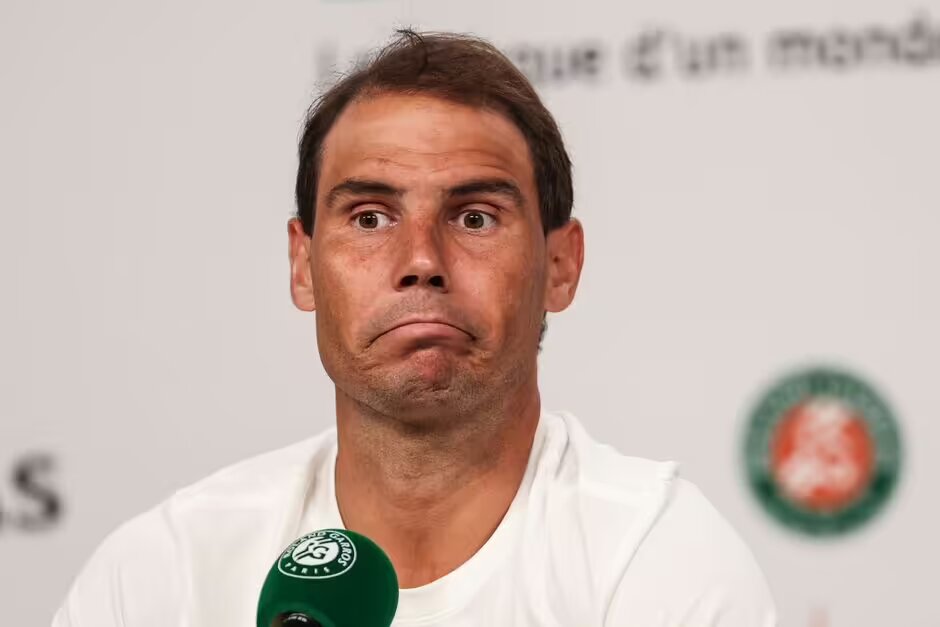Rafael Nadal has expressed a cautious yet optimistic outlook on the future of men’s tennis, particularly regarding the emerging rivalry between Carlos Alcaraz and Jannik Sinner. While acknowledging their impressive achievements, Nadal emphasizes the importance of allowing this new generation to develop their own narratives without the weight of comparisons to the legendary “Big Three”—himself, Roger Federer, and Novak Djokovic.
In a recent interview with DAZN, Nadal highlighted the significance of Alcaraz and Sinner’s accomplishments, noting that both players have secured multiple Grand Slam titles and are currently ranked among the top two in the world. He remarked, “We need to wait, but of course. This year already two Grand Slams for each of them, number one, number two in the world, so they are creating their own story.” However, Nadal cautioned against premature comparisons, stating, “We need to let them create their own rivalries and their own story. They don’t need the comparisons with us.” He believes that such comparisons should be reserved for the end of their careers, allowing their legacies to be evaluated on their own merits.
Nadal’s perspective is rooted in the understanding that each era in tennis is unique, with its own set of challenges and dynamics. While the Alcaraz-Sinner rivalry has already produced thrilling matches, such as their recent final at the China Open, Nadal emphasizes the need to let these players establish their own identities and rivalries within the sport. He expressed confidence that, over time, their sustained excellence will naturally capture the public’s attention and interest.
This approach reflects Nadal’s respect for the evolving nature of tennis and his desire to see the next generation thrive on their own terms. By focusing on their individual journeys and achievements, Alcaraz and Sinner have the opportunity to shape the future of the sport, potentially creating a legacy that will be remembered in its own right, distinct from the era of the Big Three.




